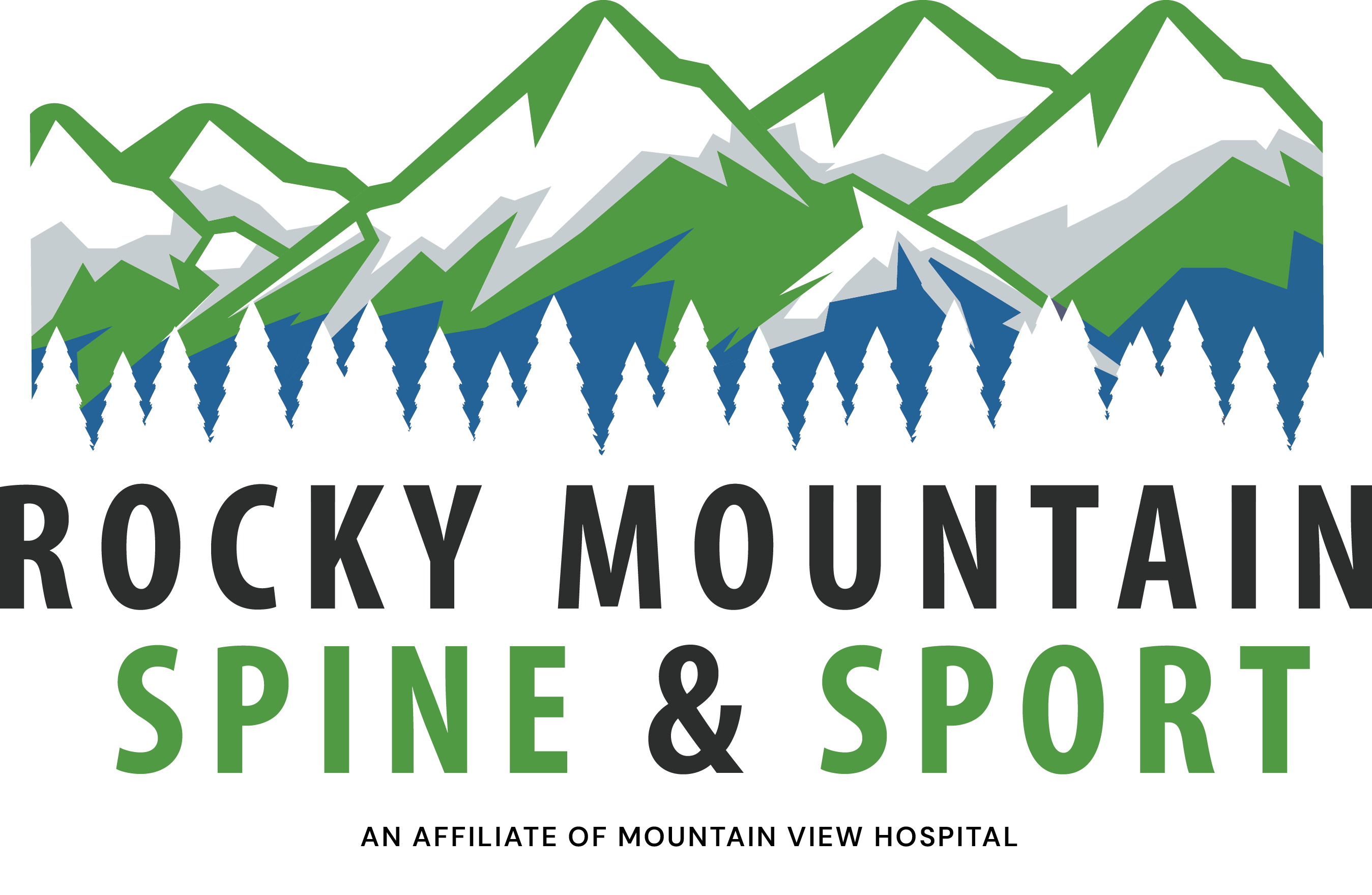Injuries to the ACL, MCL, PCL, or LCL often occur during sudden movements or impacts, usually during sports.
Knee Pain
Your knee is made up of a joint, cartilage, and ligaments that help connect your thigh bone to your shin bone. It allows you to stand, walk, and remain upright. In other words, it’s vitally important to your daily activities.
If you’re experiencing knee pain, you’re in good company. One study found that about 25% of adults experience knee pain that impacts their function, mobility, and quality of life. While knee pain can be uncomfortable to live with, treatment is available. At Rocky Mountain Spine & Sport, we specialize in non-invasive knee treatments that can reduce pain and restore functionality.
Our three locations, in Idaho Falls, Rexburg, and Driggs, allow us to provide knee pain relief to individuals all over Southeast Idaho.
Common Causes of Knee Pain
The causes of knee pain are wide-ranging, but most people find that their discomfort is due to one of the following:
Arthritis
Osteoarthritis, rheumatoid arthritis, and gout are three types of arthritis that commonly affect the knee. Each causes pain, inflammation, and reduced mobility. Osteoarthritis involves the gradual breakdown of cartilage, while rheumatoid arthritis is an autoimmune condition that attacks the joint lining. Gout, on the other hand, is caused by a buildup of uric acid crystals in the joint, leading to sudden, intense pain.
Injury
The knee can be damaged and experience pain following a sports-related injury, such as a torn ligament, meniscus tear, or fracture. These injuries can occur due to sudden impacts, awkward landings, or overextension of the knee during physical activities. Without proper treatment, these injuries may lead to long-term complications or chronic pain.
Overuse
Chronic knee pain can develop when the knee is repeatedly put under stress (for example, from regular running on hard surfaces). This constant strain can lead to conditions like patellar tendinitis, bursitis, or stress fractures.
Not all knee pain requires treatment. Mild pain often resolves on its own with rest and over-the-counter medication. However, if the pain persists, it’s important to speak with a professional. Without treatment, your condition may worsen over time and ultimately keep you from participating in the activities that bring you joy.
Knee Conditions We Treat
Mild to moderate ligament injuries
Meniscus tears, which involve damage to the knee’s cartilage, are a common cause of pain, particularly among athletes.
Also known as jumper’s knee, patellar tendinitis occurs when the knee’s tendons become inflamed. Over time, this can lead to tendon tears.
While various forms of arthritis can affect the knee, osteoarthritis is the most common, especially among individuals over the age of fifty.
Bursitis occurs when the knee’s fluid-filled sacs become swollen, causing pain and limiting movement.
Runner’s knee (patellofemoral pain syndrome)
Common among runners and athletes, this condition refers to pain around the kneecap.
Non-Surgical Treatment Options for Knee Pain
Acupuncture
In acupuncture, thin needles are placed in specific points on your body to promote natural healing. It’s a calming, noninvasive treatment.
Genicular radiofrequency ablation
This two-step process targets the nerves in your knee to help minimize pain.
Regenerative injections
Treatments like prolotherapy, PRP (platelet-rich plasma), and stem cell injections work to kickstart your body’s natural healing processes. These innovative options can help repair damage and reduce pain over time.
Cortisone injections
For immediate relief, cortisone injections deliver medication directly to the affected area, reducing inflammation and easing pain.
Hyaluronic injections
If osteoarthritis is affecting your knee, hyaluronic injections can replace the hyaluronic acid your joint has lost, improving lubrication and reducing stiffness.
Physical therapy
Physical therapy offers you a customized plan to improve your knee’s health and functionality. Through guided exercises and stretches, you’ll build strength and flexibility for long-term relief.
Tenex
Tenex uses ultrasonic energy to precisely target and treat damaged knee tendons.
Bracing/orthotics
Braces and orthotics provide extra support and stability for your knee, helping it recover quickly and preventing further injury.
TENS
TENS therapy uses gentle electrical currents to stimulate your nerves and reduce pain in the knee.
Medication
When pain or inflammation becomes too much to handle, prescription medications can offer the relief you need.
How to Know When Knee Surgery May Be Necessary
Most cases of knee pain do not require surgery and can be resolved with rest, medication, or non-surgical treatments like those available at our clinic. However, surgery may be necessary if:
- Pain or swelling persists despite treatment
- Structural damage to the knee is present
- Mobility is reduced or limited
- An acute injury has caused a visible deformity
Surgery is typically a last resort. Our team at Rocky Mountain Spine & Sport will offer their expert opinion and help you choose the best course of action.
Expert Care for Knee Pain in Southeast Idaho
If you’re ready to address your knee pain once and for all, contact Rocky Mountain Spine & Sport today. With locations in Idaho Falls, Rexburg, and Driggs, we offer a wide range of non-surgical solutions to restore your knee and get you moving again.



